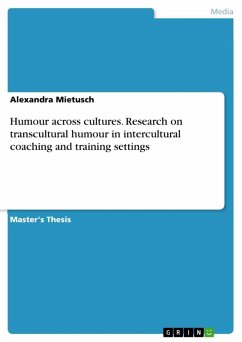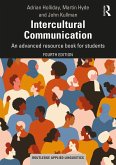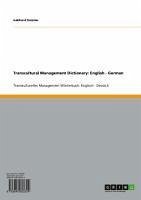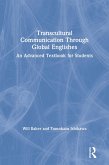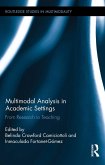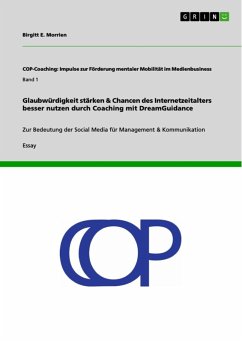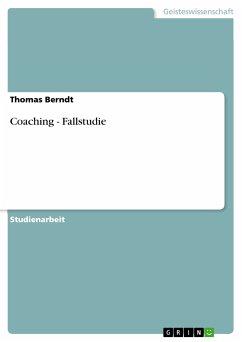Master's Thesis from the year 2013 in the subject Communications - Intercultural Communication, grade: 1,3, European University Viadrina Frankfurt (Oder) (Faculty of Cultural Studies), course: Master Intercultural Communication Studies, language: English, abstract: Humour accompanies one daily: It is widely used in movies, and it is intentionally used in everyday life. One can recognize that humour makes one feel good, relieves tensions (created by inter- and intrapersonal conflicts) and its charming character connects, bonds and unites us with the people surrounding us. Further, scientific therapeutic discourses identified humour and its popular response laughter benefits mental health and social contacts and therefore should be used in therapeutic practices. Hence, it is suggested to rethink humour not only as a therapeutic instrument, but also as a useful tool in counselling settings like Intercultural Coaching and Training. For now, one only knows that in intercultural settings the practice of humour is delicate due to cultural differences. But is there a humour that works beyond cultures? Why is it possible that for example a Brazilian and a Chinese person could laugh (as a response to a humorous message) together about the same humorous interaction? From a transcultural research angle the question of how to use a transcultural humour in intercultural coaching and training settings becomes relevant. Thus, the present study will examine the application and practice of humour by intercultural training and coaching experts for the first time. Their experiences in terms of its functions, its implementation and potential criteria of transcultural humour will be explored. The present thesis refers to theoretical concepts in humour research based on findings in social, communication and therapeutic psychology and introduces a scientifically new - currently disregarded - concept and definition of transcultural humour, based on findings of problem-centred expert interviews from intercultuarl coaches and trainers from around the world. Moreover the present study provides primary information on how a transcultural humour can work (assessing criteria, topics, functions, styles) and why it is recommended to make use of humour in Intercultural Coaching and Training.
Dieser Download kann aus rechtlichen Gründen nur mit Rechnungsadresse in A, B, BG, CY, CZ, D, DK, EW, E, FIN, F, GR, HR, H, IRL, I, LT, L, LR, M, NL, PL, P, R, S, SLO, SK ausgeliefert werden.

